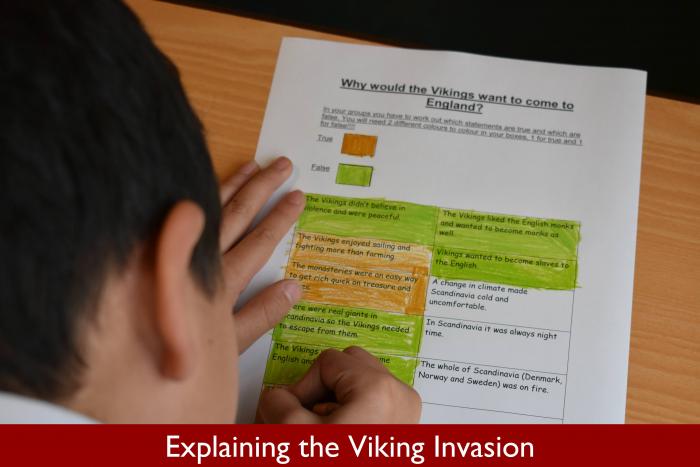
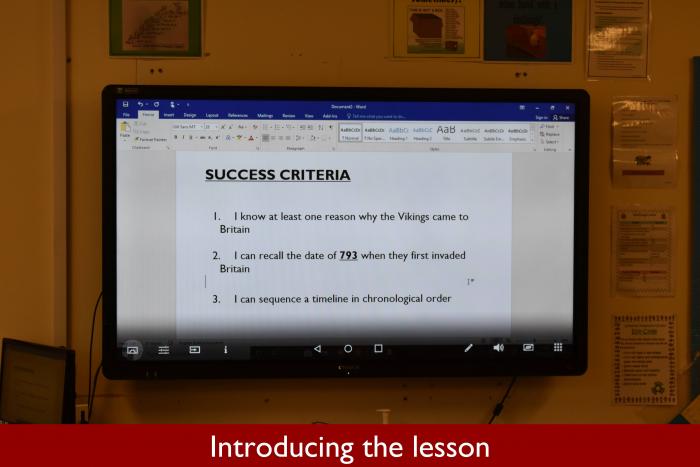
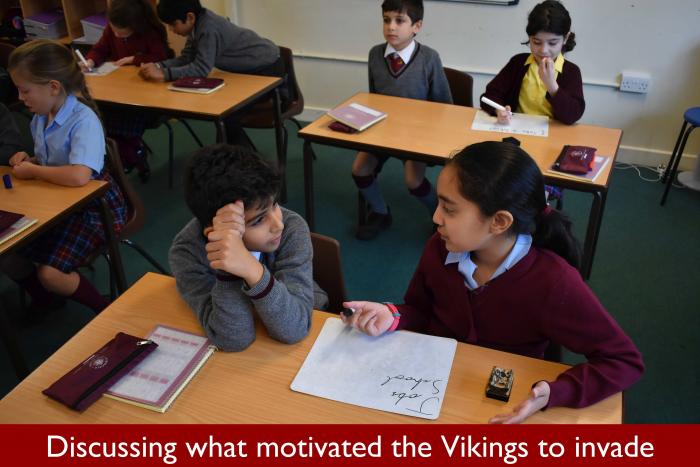



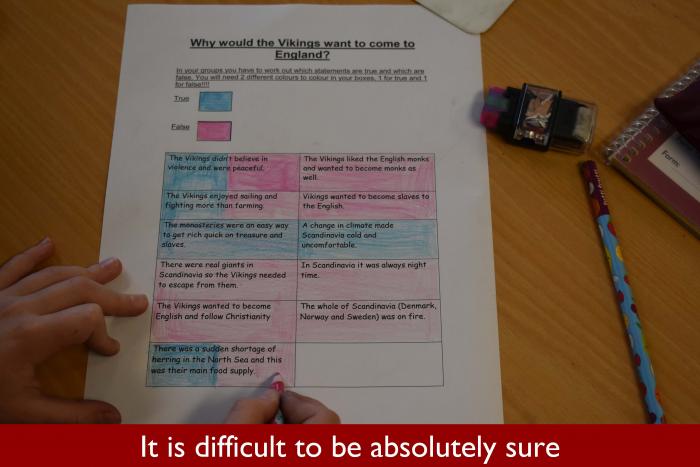
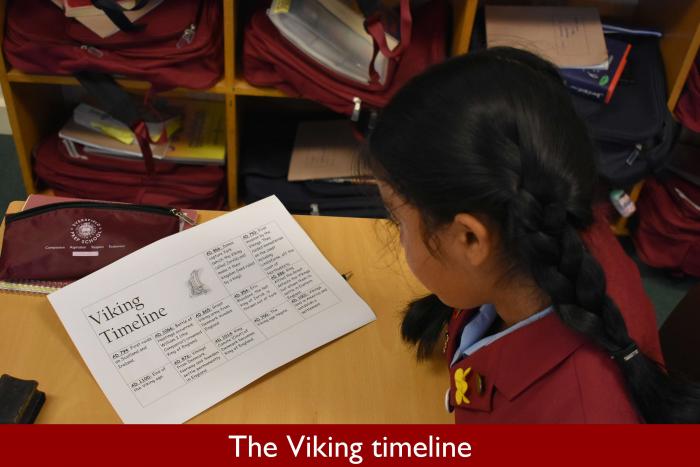
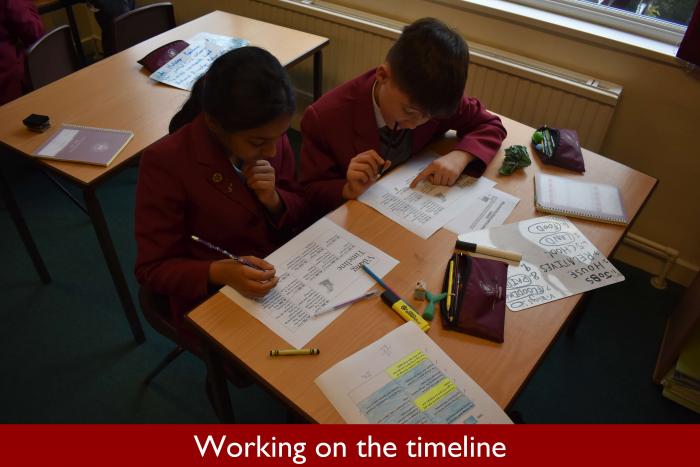
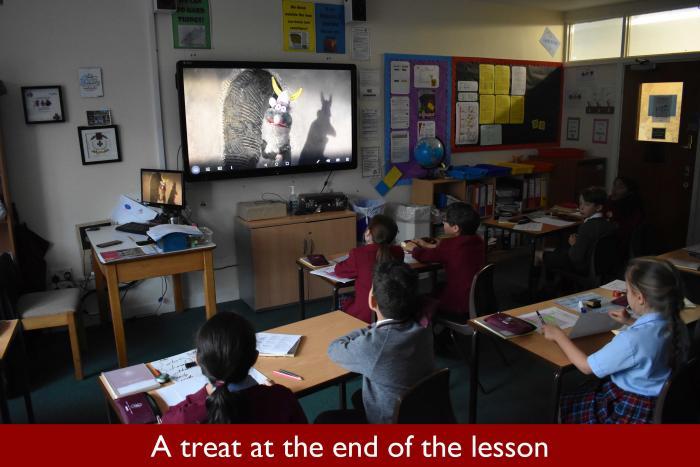
The Vikings Are Coming!
Why do people move from one country to another? What motivates them to pack up everything that is familiar and important, and leave their friends and family behind to travel to a different place of which they may know nothing? This question is as relevant today as it was more than one thousand years ago when the Vikings began to arrive on Britain’s shores.
Mr Leonard started his history lesson with 4ML by asking the children to work with a partner to consider the motives behind migration in modern times. Noah immediately suggested natural disasters, such as hurricanes or tsunamis. Other suggestions included better education, moving closer to family or escaping from war. Another key reason, of course, is relocating for work, and both Lamar and Mariam have had recent experience of such a move. Lamar recalled how difficult it had been to leave her friends, although the prospect of meeting new people was exciting. Mariam was thrilled at the prospect of seeing snow for the first time when she moved to England.
After this encouraging start, Mr Leonard asked the children to focus specifically on the Vikings and their reasons for coming to Britain. Did they have the same motivations as people today, or were they more like the Roman and Anglo-Saxon invaders who preceded them? Aisha suggested that the Vikings invaded because they wanted to make themselves rich. James agreed, adding that he already knew that they traded in slaves. Interestingly, although everyone in the class was sure that the Vikings came primarily in search of land and treasure, Lskh and Ruben put forward the view that the Vikings’ intentions were both violent and peaceful. As Lskh perceptively pointed out, ‘Not every Viking would be the same. Once they had raided, they settled into farming life.’
Lksh and Ruben are clearly skilful historians in the making because, whilst it is tempting to imagine Viking raiders as huge, hairy, axe-wielding thugs, in reality the picture is much more nuanced. As had been the case with the Romans, the decision to make a more permanent move to Britain was preceded by a long period of trading relations. The Vikings did not simply pile into their longboats and set sail into the unknown. They noticed that the climate in Britain was more favourable for farming than in Scandinavia. It has also been suggested that a decline in herring fishing encouraged those living by the coast to look elsewhere to make a living.
Of course, the Vikings were also extremely opportunistic. It would surely not have escaped their attention that a number of monasteries were scattered all the way along the British coast. Although the Vikings were not yet Christian, instead worshipping a range of their own gods including Thor and Odin, it seemed they were more excited by the prospect of plundering treasure than killing monks. The monasteries, by their very nature, were usually isolated and poorly defended, making them vulnerable to attack. The first significant raid occurred in 793 at Lindisfarne, off the coast of Northumbria, and this was the date Mr Leonard wanted the children to remember at the end of the lesson.
The Viking invasions were not simply grab and go affairs. Viking people settled in Britain, for instance in the area around York, where their heritage can now be seen at the wonderful Jorvik Museum. Even where no physical trace of the Vikings remains, they have left their mark on the landscape through place names. Take a look at a map of England and you will see that a large part of the north and east of the country is peppered with places ending in –by and –thorpe, such as Grimsby, Selby and Scunthorpe, words of Viking origin indicating the presence of a settlement.
As the lesson continued, Mr Leonard wanted the children to gain an understanding of the chronology of the Viking period and, again working with a partner, they were asked to sequence a series of significant events. It’s quite surprising to discover that the end of the Viking Age did not come until 1100, thirty-four years after the Battle of Hastings. In fact, one of the reasons why King Harold’s army was defeated in 1066 was that his soldiers were exhausted after marching all the way up to Stamford Bridge in Yorkshire in the weeks leading up to the battle to repel an invasion from Harald Hardrada of Norway.
The children in 4ML are excited to learn more about the Vikings. In the coming weeks, they will explore Viking warfare, trade and exploration, before creating their very own Viking board game.